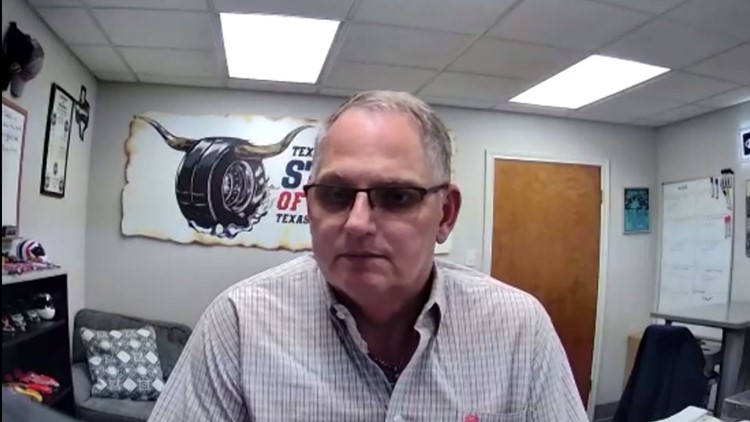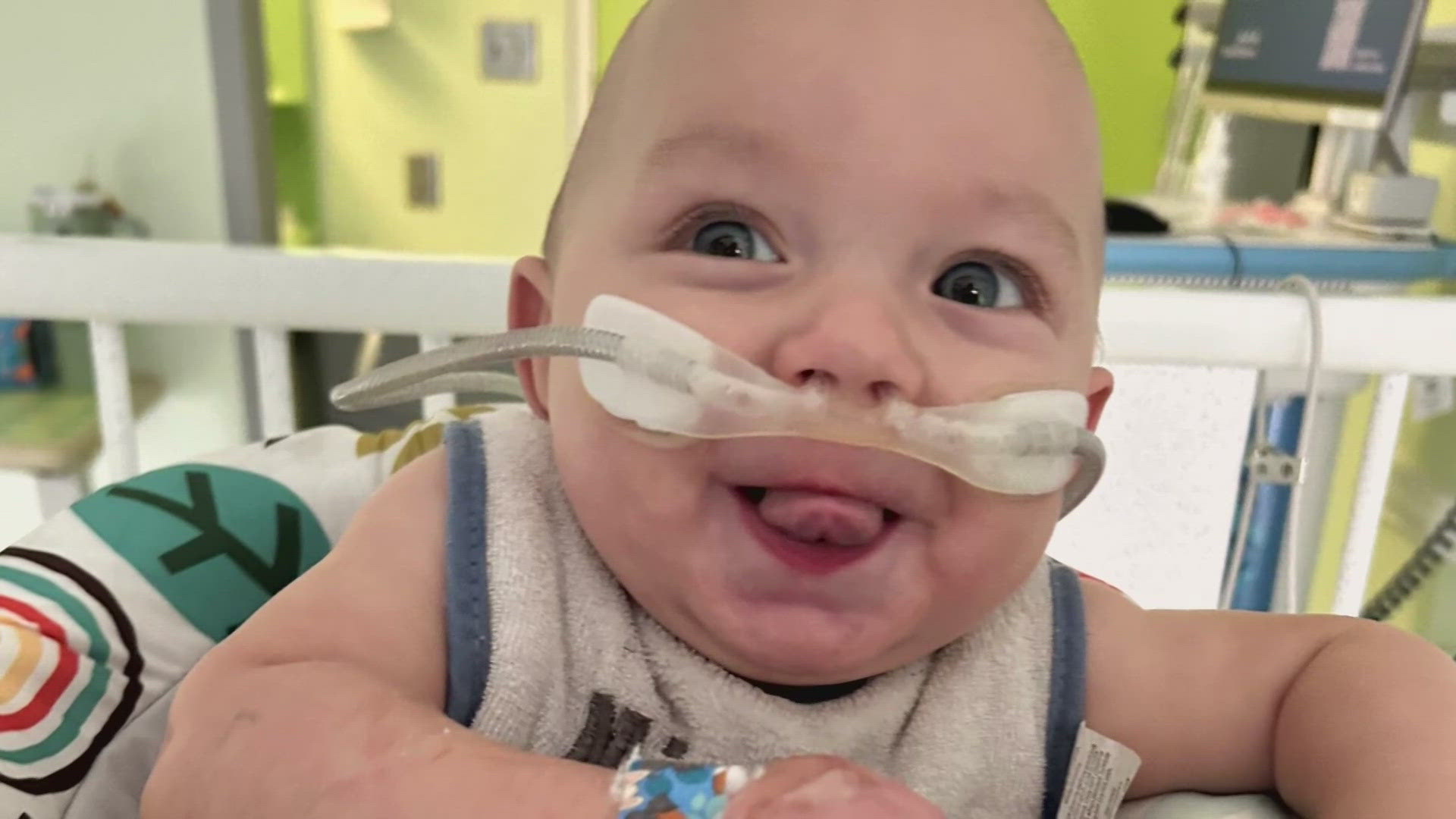DALLAS — A Red Oak man said his Friday cancer surgery at UT Southwestern was delayed because, he was told, “the hospital needs to save beds for COVID patients.”
Andy Carter was diagnosed with kidney cancer in early December 2021 and had been planning for his Jan. 28 surgery for weeks. He said he mostly isolated the past few weeks to ensure he was healthy and ready for the surgery.
As recently as this morning, he had been told his surgery would be delayed until Feb. 11. Late Thursday afternoon, however, he was offered a new surgery date on Jan. 29, which he's accepted.
“My deal is not a life or death situation right now, but it’s just kind of frustrating,” Carter said. “I had accepted it, knowing [that on] the 28th, we’re going to remove it and life goes on. So, now, that’s when it kind of hit me hard... when they cancelled that surgery.”
UT Southwestern said they cannot comment on a specific case but added that they have not postponed any non-elective surgeries. When asked what is considered a non-elective surgery, a spokesperson did not respond before this report.
Earlier in the day, UT Southwestern spokesperson Russell Rian said, “I can’t tell you about why cases are rescheduled the way they are.”
Carter is happy to hear a sooner time opened up for his surgery, but was still surprised over the initial delay.
“When something is wrong with you, it’s the most important thing in the world,” Carter said. “Now, we just kind of feel like we’re starting over.”
In a sampling of hospitals across Dallas-Fort Worth, John Peter Smith Hospital in Fort Worth said they’ve held off on elective surgeries requiring hospital admission since the fall. All other surgeries have continued.
Parkland Hospital in Dallas said they are not postponing or cancelling surgeries and that they do not hold beds. They said every bed they can staff is in use.
Medical City Healthcare in Dallas said they have all the resources and capacity needed to meet the needs of their patients.
A spokesperson with Baylor Scott & White shared the following statement about its own hospitals' policies: "To help our hospitals stay ready for those who need care most during this time, we are carefully evaluating our capacity at each facility on a daily basis and are working with our patients and physicians to reschedule non-emergent procedures when doing so would create additional capacity for COVID-19-positive patients. We will still perform urgent and emergent procedures. We are reviewing each case closely to make these determinations with the acuity of the procedure ultimately decided by the patient’s physician."
Carter’s just grateful his cancer hasn’t spread.
"Obviously, it’s got potential to spread," he said. "[But] I don’t know how fast this kind of stuff spreads. At some point, you got to get it out before it does spread and turns into something worse.”
He hopes delays don’t continue at hospitals in the years ahead.
“This can’t be the new norm,” he said. “Every year, some variant of COVID jumps up and you can’t get in the hospital, and you can’t treat people that need treatment. It just can’t be part of the new norm.”



